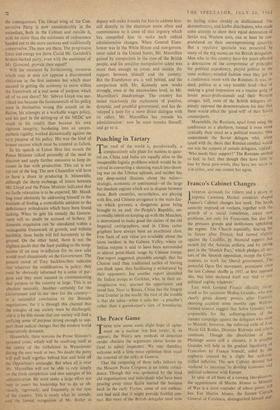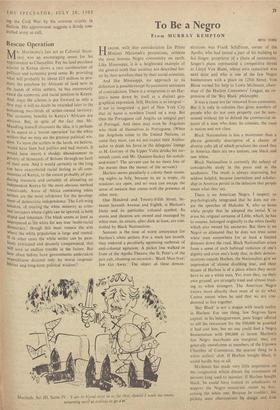Franco's Cabinet Changes
INTERNAL demands for reform and a desire to impress Common .Market countries shaped Franco's Cabinet changes last week. The .harsh_ austerity imposed on workers, together with the, growth of a social conscience, create new problems, not only for Francoism, but also for the pressure groups and institutions upholding the regime. The Church especially, fearing for its future after Franco, had turned slightly against the Caudillo, by financial support last month for the Asturias strikers, and by taking part in the 'Munich Pact,' which pledges all see• tors of the Spanish opposition, except the Com- munists, to work for liberal government. The! powerful Opus Dei movement, prominent since the last Cabinet shuffle in 1957, at first opposed this, but later declared itself not 'tied to anY political regime whatever.'
Last week . General Franco officially rec"g" nised as his successor Munoz Grandes, who was clearly given deputy powers after Franco s shooting accident some months ago. Well'in- formed sources suggest that Set-tor Grandes was responsible for the softening-dOwn of the slander campaign against the delegate's who went to Munich; however, the enforced exile of J°sc Maria Gil Robles, Dionisio Ridruejo and others continues. Though the dissolution of the Phalange seems still a chimera, it is possible Grandes will help in the gradual liquidising of Francoism by Franco himself, aided by the euphoria created by a slight but well-con- trolled inflation. •Ihe new Cabinet decreed last weekend its intention `to develop economic and political cohesion' with Europe. In spite of all hints of a coming liberalisation, the appointment of Martin Alonso as Minister of War is a stern reminder of where power still lies. For Martin Alonso, the former Captain General of Catalonia, distinguished himself dor-
log the Civil War by his extreme cruelty in Galicia. His appointment suggests a firmly con- trolled army at call.



































 Previous page
Previous page